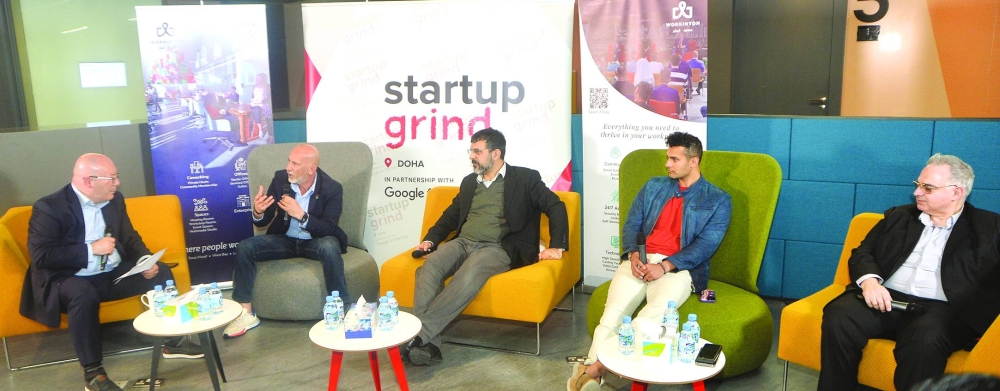Rather than replacing humans, AI-human collaboration will shape the future workplace, according to tech industry leaders and academics during a recent panel discussion hosted by Startup Grind Qatar.
Titled ‘The Rise of AI Employees: Are We Ready for it’, the panel comprised executives from Google, Scale AI, Kaic.ai, and the Arab Centre for Research and Policy Studies, who differentiated current AI capabilities and complete workplace automation.
Dr Chawki Tawbi, Data & AI lead at Google, announced the launch of its ‘Agentspace’ platform, which would connect Google employees with AI assistants to access existing workplace tools and data sources, with capabilities spanning HR, accounting, and research functions.
“Agentspace will enable employees to use a search engine on top of all their data sources and their day-to-day applications... we are helping to improve and increase productivity and help employees focus on more creative tasks,” he explained.
Sahil Bhaiwala, director and general manager, Global Public Sector at Scale AI, emphasised that the distinction between AI and traditional automation is a crucial point of discussion, citing robotic process automation (RPA). According to Bhaiwala, today's AI capabilities for processing language, images, and videos in a human-like manner are more advanced and concerning than previous automation tools.
“That’s why these conversations now versus two years ago are much more pressing to have because we’re starting to see the inklings of this getting more and more real,” Bhaiwala pointed out, referring to RPA.
Firas Sleiman, founder and CEO of Kaic.ai, offered a practical framework regarding job displacement, saying, any job that can be defined by data and a set process, with minimal thinking or ethical decision-making involved, is highly suitable for AI.
“That job, if you can define it that way, is at the top of the list of what an AI employee can do. An orchestration machine will do exactly what it’s told to do. When you give it data, models, and steps that it needs to run, it will run them, and then the output comes out. This concept applies across various industries, each having its own tier of jobs that align with this definition,” he explained.
However, Dr Fadi Zaraket, unit director at the Arab Centre for Research and Policy Studies, cautioned about AI’s limitations and advocated for developing expertise in multiple domains to remain relevant in an AI-enhanced workplace.
Zaraket emphasised the importance of establishing “smaller LLMs (large language models) that we have control of” as a crucial strategy to ensure data privacy while still capitalising on advanced capabilities provided by AI.
The panel also underscored the critical need to maintain human oversight in areas of ethical decision-making and strategic planning. They highlighted that, although certain job functions could be automated, it is essential to prioritise the use of AI as a tool to enhance human skills and creativity.

Titled ‘The Rise of AI Employees: Are We Ready for it’, the panel comprised executives from Google, Scale AI, Kaic.ai, and the Arab Centre for Research and Policy Studies, who differentiated current AI capabilities and complete workplace automation. PICTURE: Shaji Kayamkulam

